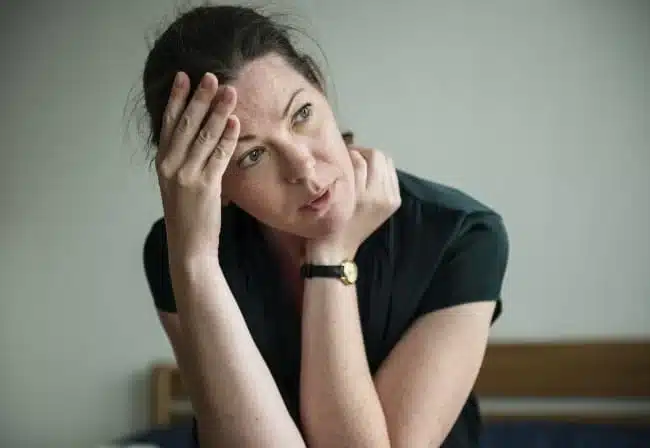
Every human life includes difficult circumstances. However, the intensity of certain events can sometimes exceed the body and mind’s ability to fully process it. Trauma is the term psychologists use to describe the mental-emotional response to such events.
Trauma is a psychological scar or wound. This reaction has the potential to progress into Post-Traumatic Stress Disorder (PTSD) or Complex Post-Traumatic Stress Disorder (CPTSD).
People suffering from PTSD or CPTSD frequently relive the traumatic event through flashbacks or nightmares. Physical symptoms such as insomnia and difficulty concentrating may occur. Furthermore, they may experience a variety of emotions such as fear, anxiety, anger, guilt, shame, sadness, or isolation.
The good news is that both PTSD and CPTSD are treatable. To aid healing, the skilled therapists at Revival Mental Health use a variety of holistic modalities and evidence-based therapies.
But what is the distinction between PTSD and CPTSD? What are the symptoms and how are they treated for each? Let’s find out.
What is PTSD?
PTSD is an anxiety disorder caused by intensely stressful, frightening, or distressing events. It is linked to symptoms like emotional numbness, hyperarousal, re-experiencing (via flashbacks), and anxiety-induced avoidance.
It is natural to be upset and confused in the aftermath of a traumatic event. Most people will have temporary difficulty coping with or adjusting to what has just occurred. There is, however, hope for recovery and returning to a normal life free of PTSD. PTSD treatment is frequently the most effective way to achieve recovery and peace.
There are a few indicators that a person is suffering from PTSD. These signs include:
• Especially troubling symptoms
• Symptoms that worsen over time
• Symptoms that persist for more than four weeks following the traumatic event.
• Symptoms that interfere with daily activities
• Having difficulty functioning
SYMPATHETIC VS. PARASYMPATHETIC RESPONSES
Traumatic events activate the sympathetic nervous system’s “fight, flight, or freeze” response. This reaction is useful in times of immediate danger. When the danger has passed, the nervous system should return to its “rest and digest” mode.
People suffering from PTSD may find themselves stuck in “fight, flight, or freeze” mode. This coping strategy can last for weeks, months, years, or decades after the traumatic event.
WHAT CAUSES PTSD?
One out of every three people who experience severe trauma will develop Post-Traumatic Stress Disorder. Why it develops in some people but not in others is still not fully understood.
Any traumatic event or situation that a person encounters can result in PTSD. Examples of such circumstances include:
• Serious automobile collisions
• Natural disasters such as hurricanes, tornadoes, floods, wildfires, and earthquakes
• Violent personal assaults, including rape, sexual assault, and mugging
• Critical illness or injury
• A loved one’s death
• Horrible childbirth experiences
• Threats of death, sexual violence, or serious injury
• Active military service/combat
• Residing in a war-torn area
• Witnessing a terrorist attack
• Being tortured
• Emotional or domestic abuse
• Sexual harassment or bullying
• Racial trauma or hate-crime incidents
• Pandemic Covid-19
• Abuse in childhood
• Large-scale shootings
THE ONSET OF PTSD SYMPTOMS
PTSD symptoms can appear immediately after witnessing a distressing event. However, these symptoms may not appear for weeks, months, or even years after the event.
The severity of Post-Traumatic Stress Disorder symptoms can also vary. They may subside for a time before worsening. They may be triggered by circumstances or events that are similar to the original trauma.
A loud door slam may cause them to relive the experience of being caught in a battlefield crossfire for a war veteran. A certain tone of whispered voice may evoke memories of sexual assault.
PTSD SYMPTOMS
Symptoms of Post-Traumatic Stress Disorder vary from person to person and change over time. They are frequently severe enough to have a negative impact on a person’s day-to-day life and make functioning difficult.
The most common PTSD symptoms are divided into four categories:
• Intrusive memories
• Avoidance
• Disturbances in thinking and mood
• Changes in emotional and physical reactions
INTRUSIVE MEMORIES
Memory that comes back to haunt you. PTSD symptoms may include:
• Reliving the traumatic event as if it were happening again.
• Recurrent nightmares about the traumatic event.
• Upsetting recollections of the traumatic event.
• Triggered reactions: intense emotional distress and/or physical reactions to people, objects, or events resembling the traumatic event.
AVOIDANCE
PTSD avoidance symptoms may include the following:
• Attempting to avoid thinking about or discussing the traumatic event.
• Avoiding people, places, or activities that bring back memories of the traumatic event..
DISTURBANCES IN THINKING AND MOOD
PTSD symptoms that involve disturbances in mood or thinking may include:
• Feeling emotionally numb
• Negative feelings about the future
• Negative feelings about oneself, others, or the world
• Memory issues, such as forgetting key details of the traumatic event
• Frayed relationships: a sense of estrangement from friends and family, as well as difficulties with trust and intimacy
• Loss of interest in previously enjoyed activities
• Difficulties feeling positive emotions
CHANGES IN EMOTIONAL AND PHYSICAL REACTIONS
Arousal symptoms are PTSD symptoms that involve changes in emotional or physical reactions.
• Unpredictability of emotions
• Constantly feeling nervous
• Being easily startled or terrified
• Feeling irritable or frustrated?
• Strong emotions such as sadness, fear, or guilt
• Always keeping an eye out for potential hazards
• Self-destructive behavior, such as excessive drinking, drug use, and speeding
• Aggressive behavior or rage-filled outbursts
PTSD VS. CPTSD
What is the distinction between PTSD and Complex Post-Traumatic Stress Disorder (CPTSD)?
Many symptoms are shared by the two conditions, and they are treated using essentially the same healing modalities. The severity and occurrence of the traumatic event distinguish these mental health conditions.
Individuals who are subjected to traumatic situations on a regular basis may be diagnosed with PTSD. These circumstances could include ongoing sexual abuse or domestic violence, childhood neglect, or torture as a long-term prisoner of war. Repeated trauma causes complex trauma in those who are affected.
WHAT IS CPTSD?
Complex PTSD is a type of PTSD that is commonly diagnosed in people who have been subjected to ongoing or repeated traumatic events. This diagnosis was added with the understanding that traumas are more serious in certain circumstances.
When a person is diagnosed with CPTSD rather than PTSD, they are more than likely to have experienced:
• The trauma happened when they were young.
• The physical or emotional abuse was carried out by someone they trusted, such as a parent or caregiver.
• The trauma was ongoing, or it occurred over a long period of time.
• The traumatized individual was alone during the incident.
• They maintain regular contact with the perpetrator or the location of the trauma.
SYMPTOMS OF CPTSD
CPTSD symptoms are similar to PTSD symptoms but may also include:
• Strong distrust of the world.
• Feelings of hopelessness and helplessness.
• Feelings of shame or guilt that are intense.
• Extreme emotional.
• Dissociation: feeling disconnected from oneself and one’s emotions.
• Periods of inattention and disinterest.
• Physical symptoms such as vertigo, headaches, stomach aches, or chest pains.
• Isolating oneself from family and friends.
• Aversion to or difficulty maintaining relationships.
• Extremely harmful or dangerous behavior, such as self-harm, alcoholism, or drug dependancy.
• Life and other people appear distorted and unreal.
• A muddled sense of self.
• Suicidal ideation or behavior.
TREATMENT FOR PTSD AND CPTSD
Psychological therapy and medication are the primary treatments for Post-Traumatic Stress Disorder (PTSD) and Complex Post-Traumatic Stress Disorder (CPTSD).
Psychological therapies are usually recommended first when a person has PTSD that requires treatment. Trauma-focused psychological treatment frequently incorporates modalities such as:
• CBT (cognitive-behavioral therapy)
• DBT (Dialectical Behavior Therapy)
• EMDR (eye movement desensitization and reprocessing)
• MBCT (Cognitive therapy based on mindfulnes)
• Somatic Experiencing, body-oriented psychotherapy, and restorative yoga are examples of body-centered treatments.
A combination of treatments may be beneficial for those suffering from severe or persistent PTSD or CPTSD. For many people, a combination of psychological therapy and medication may be the most effective treatment option. The most commonly prescribed medications are antidepressants known as selective serotonin reuptake inhibitors (SSRIs).
GETTING HELP
Traumatic events can be extremely difficult to accept. The good news is that both PTSD and CPTSD can be successfully treated. Even many years after the traumatic event or events, these disorders can be treated. It is never too late to seek assistance!
Clients at Revival Mental Health can focus on their healing in a calm, supportive environment. We pride ourselves on valuing community, fulfillment, balance, and integrity. If you or someone you know is experiencing PTSD or CPSTD symptoms, call us today.
Our mental health professionals provide a blend of holistic therapies and evidence-based treatments. These techniques are used to nourish, support, and inspire each individual’s healing journey.




